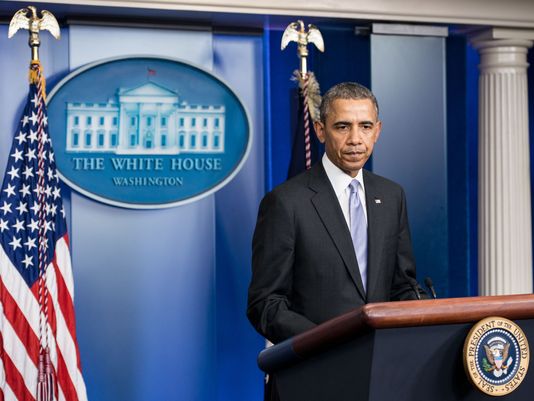Those who want to see a people’s democracy, let them come here and see this,” Fidel Castro told the UN General Assembly in 1960, after his Marxist insurgency overthrew Fulgencio Batista’s government in Cuba.
The United States had long made forcefully clear that it preferred dictatorial banana republics (Nicaragua), coffee republics (Guatemala), or, in Cuba, sugar republics—to “people’s republics” trapped in the dark, totalitarian night of Communism. From the latter there is no escape, warned Jeanne Kirkpatrick in “Dictatorships and Double Standards,” an essay for the neoconservative Commentary magazine that impressed Ronald Reagan, who made her U.S. Ambassador to the same UN General Assembly in 1981.
The Bay of Pigs invasion and “Cuban missile crisis” of the early 1960s showed that the Soviet bloc reaching to just 90 miles off American shores generated anxiety and even hysteria among American foreign policymakers—not only because Cuba was becoming totalitarian but because it had been a virtual protectorate in our sphere of influence ever since we’d won the Spanish-American war in 1898.
Might this history shed some light on Russian foreign policymakers’ recent anxiety and even hysteria at the prospect of the EU reaching into its own former protectorates, such as Georgia or Ukraine, right up to Russia’s borders?
The United States had long made forcefully clear that it preferred dictatorial banana republics (Nicaragua), coffee republics (Guatemala), or, in Cuba, sugar republics—to “people’s republics.”
Of course there’s no moral or economic equivalency between Cuba joining the Soviet bloc and Ukraine (or Georgia) joining the EU or even NATO. But in The New Republic, I noted last week, Leon Wieseltier unintentionally made a strong case for Vladimir Putin by reminding us that “The economic notion of rationality should sometimes yield to the anthropological notion of rationality” and that Putin is acting on the basis of “Great Russian nationalism … and of the civilizational difference between Russia and the West: those are Putin’s Slavophile reasons, along with the ‘logic’ of power that all tyrants enact.”
Well, the U.S. had its own “anthropological” and nationalist reasons, as well as market ones, for supporting Central and South American tyrannies, which prompted half a dozen people’s insurgencies—not all of them hatched or funded in Moscow — and, in turn, some American-backed counterinsurgencies, some of them so ugly they make Putin’s recent incursions into non-Crimean Ukraine look almost benign.
They’re not benign, of course, and we wouldn’t have been wise to look upon Castro in the 1960s as benignly as we now think Russia should look upon a western-oriented Ukraine or Georgia. But reviving Cold War arguments and saber-rattling strategies against Putin’s aggression in Ukraine can only confound our understanding of Russian moves that, for purely “anthropological,” nationalist, and historical reasons, we should understand only too well.
The best reasons to impose strong sanctions against Russian-nationalist tyranny aren’t anthropological but liberal and, yes, geopolitical. President Obama would be right to impose them without moralistic, fire-breathing Cold War rhetoric or gestures to prove his decisiveness as leader of the Free World.
How to strike the right balance between firm leadership and empty posturing?
Commenting on David Bromwich’s almost psychoanalytic essay filleting Obama’s long record of passivity since his law school days, Roger Berkowitz claims in The American Interest that “The problem with President Obama is not that he lacks convictions. It is that he doesn’t know that he lacks convictions.”
As Berkowitz puts it, summarizing Bromwich, “[Obama] still believes that he has strong convictions that Syria cannot use chemical weapons in a civil war against its own people. He still believes that it is intolerable to allow Russia to annex part of a sovereign country. He stands up and makes his strong convictions clear. But then he sits down and refuses to fight for those convictions, proving them beliefs. The point is not that he should fight in Syria or in Ukraine. The point is that he should not be speaking loudly and issuing ultimatums when he lacks the conviction to back them up.”
Fair enough, but it’s worth re-emphasizing that Communism’s spectacular collapse and replacement by viable democracies in Poland and at least some other Eastern European nations has discredited not only the Russian boot outside Russia’s borders but also assumptions such as Kirkpatrick’s and Reagan’s that “our” dictatorships—and our Putin-like interventions to sustain them—incubated more actual democracy than Russia’s interventions did. A better guide than Wieseltier to American engagement abroad is Brian Katulis’ nuanced, progressive case “Against Disengagement” in Democracy Journal.
Jim Sleeper, a writer and teacher on American civic culture and politics and a lecturer in political science at Yale, is the author of The Closest of Strangers: Liberalism and the Politics of Race in New York and Liberal Racism. He wrote this for Washington Monthly.







0 Comments